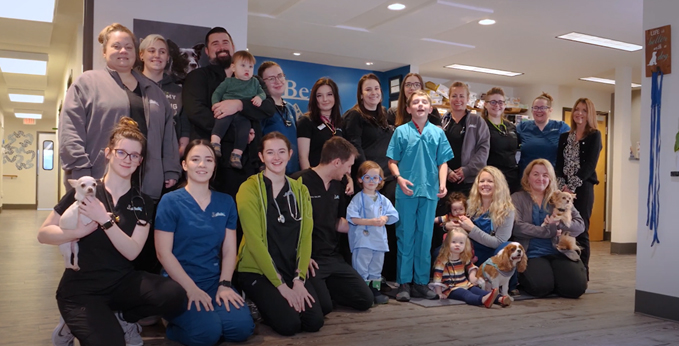

Proudly Welcoming New Clients!
About East Bend Animal Hospital
Our goal is to ensure our patients are treated as family members and that clients are well informed, involved, and comfortable with the decisions made regarding their pet’s care. We know that each animal is unique, just like each person is, and as such, has special needs. For this reason, we draw on various treatment modalities to design the best and most comprehensive wellness plan for each animal.
We are Fear Free vet clinic.
At East Bend Animal Hospital, a Fear Free vet clinic, we know it can be terrifying for your pet to leave the comfort and safety of your home and come to our office.


Animals We Cover
We are a full-service animal hospital for dogs, cats, pocket pets, reptiles, and birds.
Complete Veterinary Care in Bend, OR
At East Bend Animal Hospital, we recognize that your pets play a significant role in your life. A highly qualified and compassionate veterinary staff will provide you and your pets with the best care.
Meet Our Veterinary Doctors and Staff
Our East Bend Animal Hospital veterinary team is Fear Free Certified staff, and PennHip Certified, which means a lot to us. We will constantly apply the latest in veterinary medical advancements to diagnose appropriately, treat and care for our patients so your loved ones remain happy and healthy.













